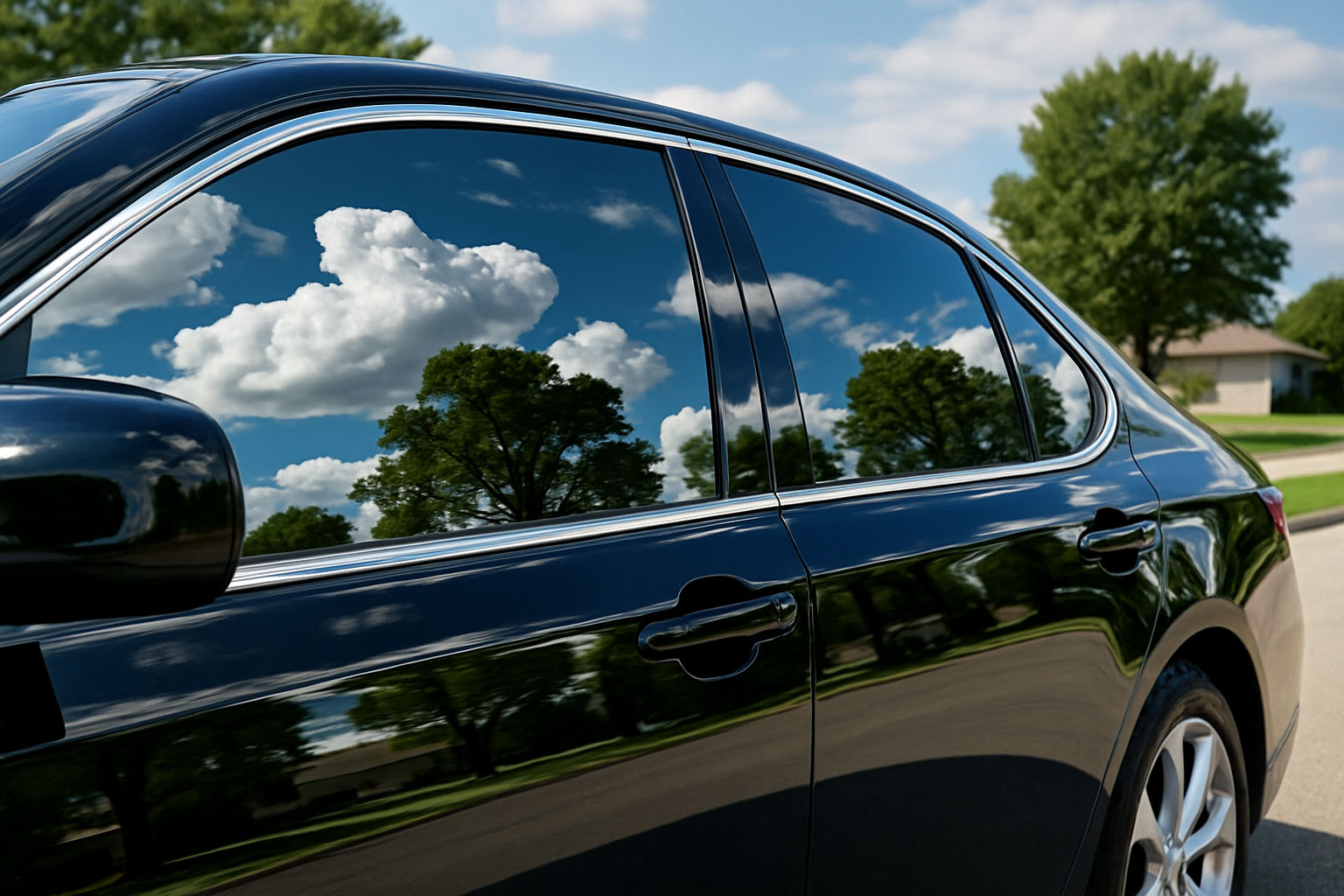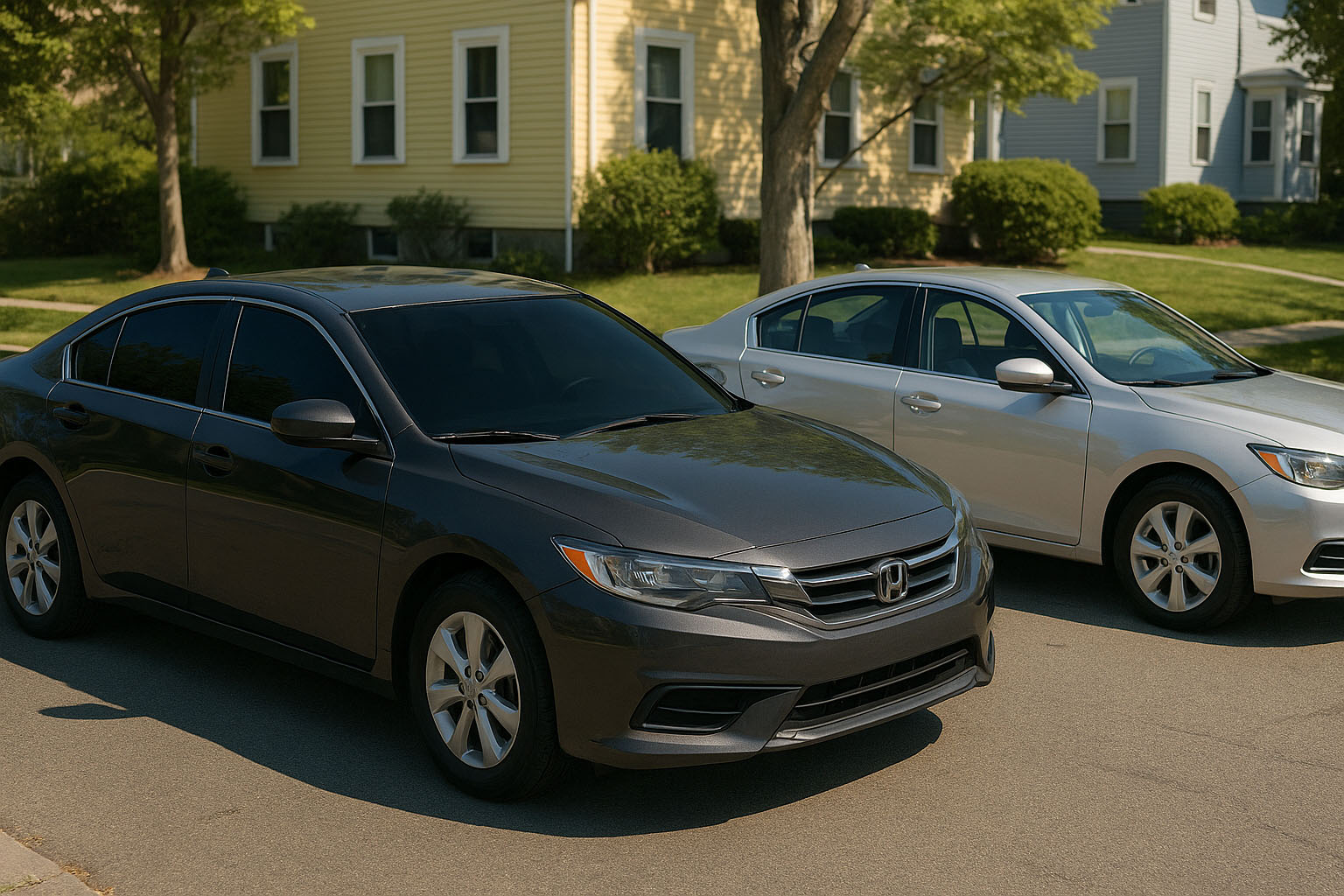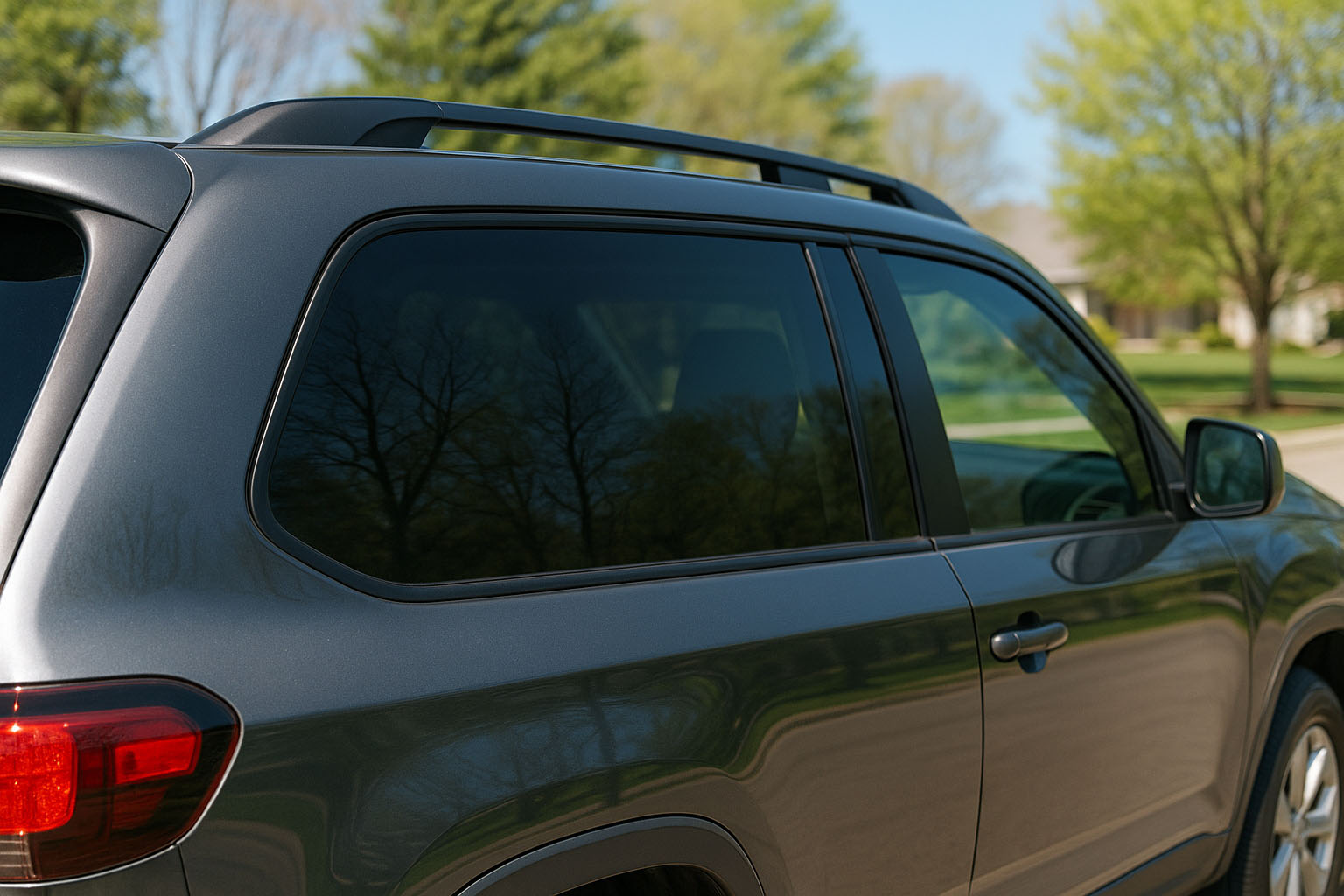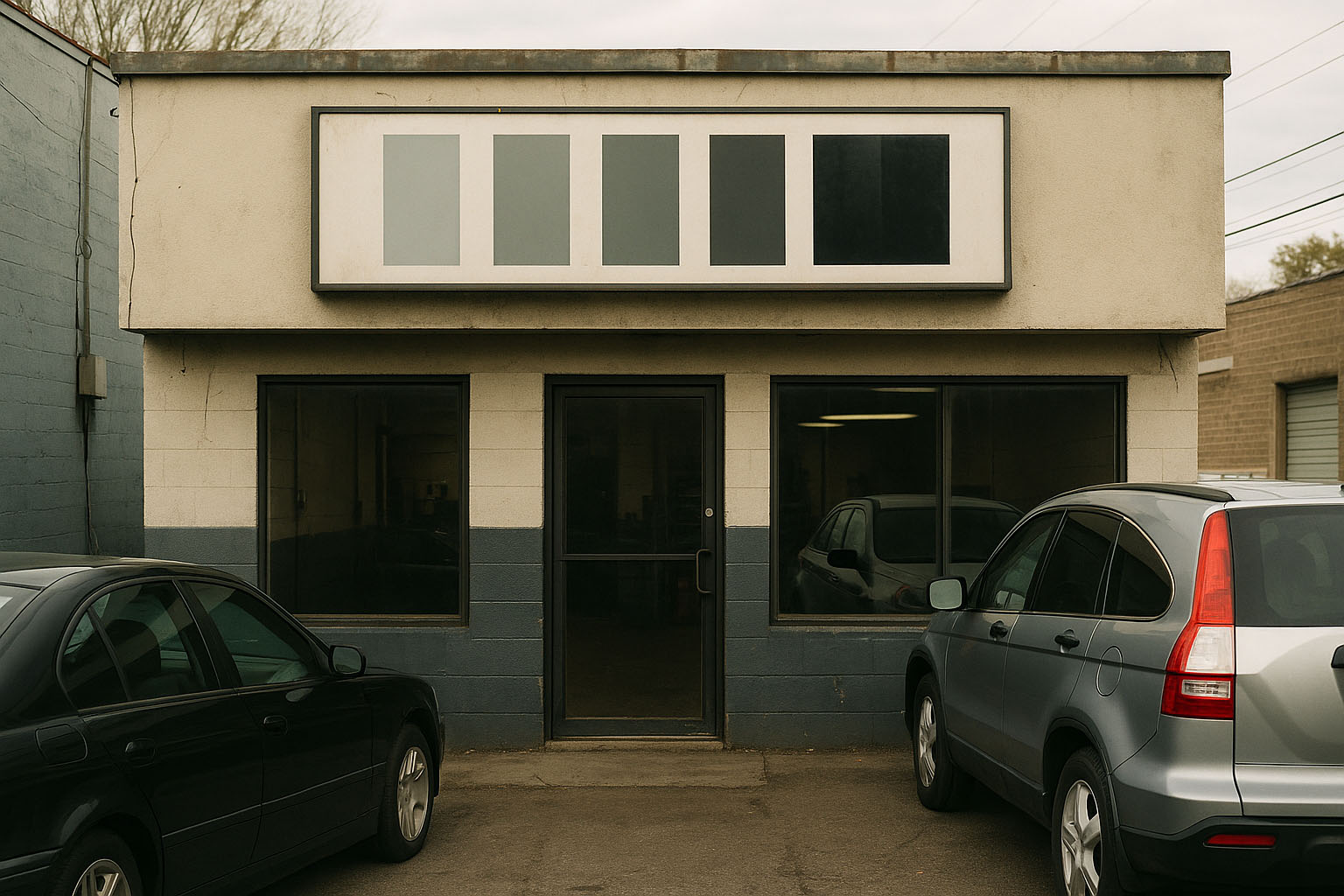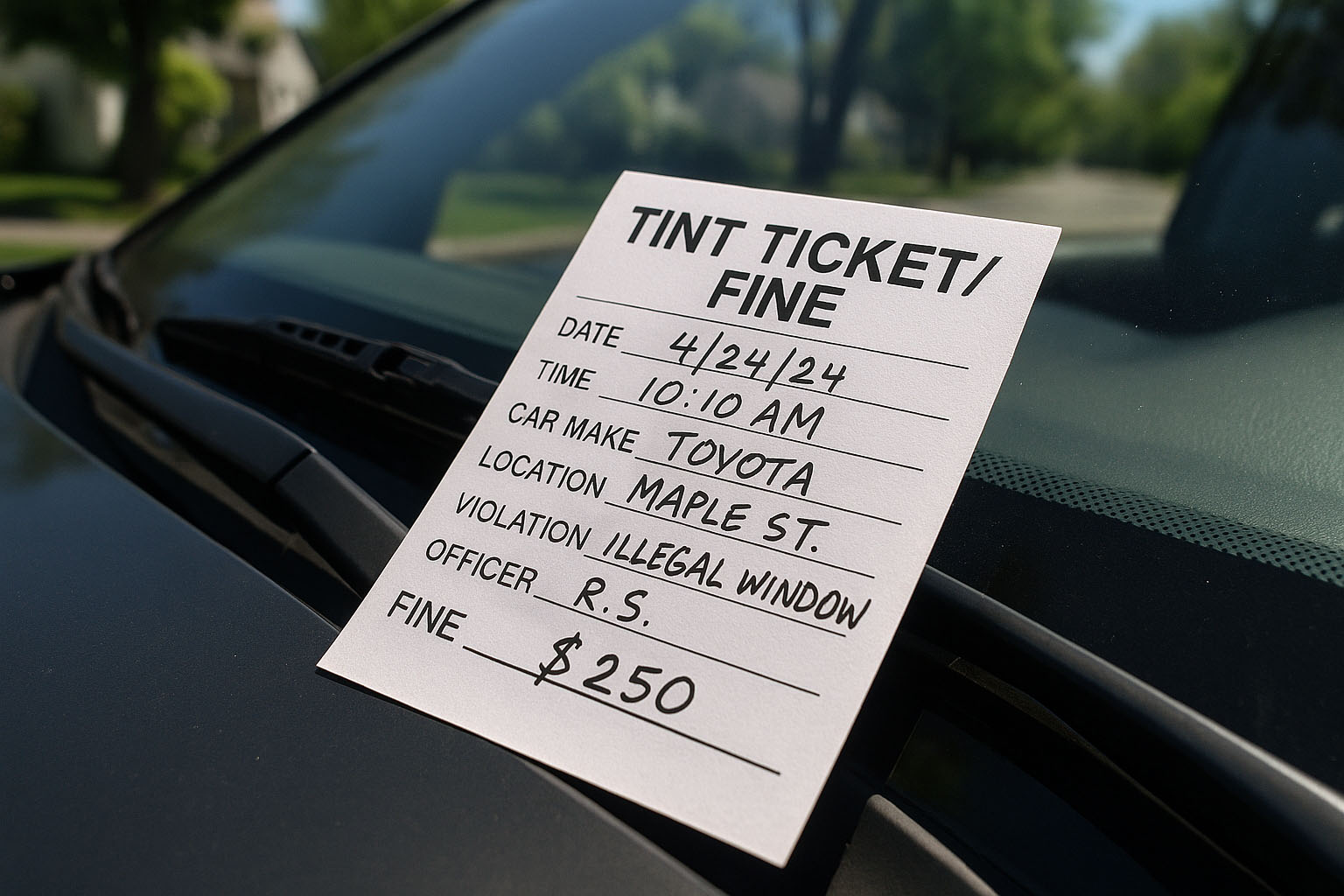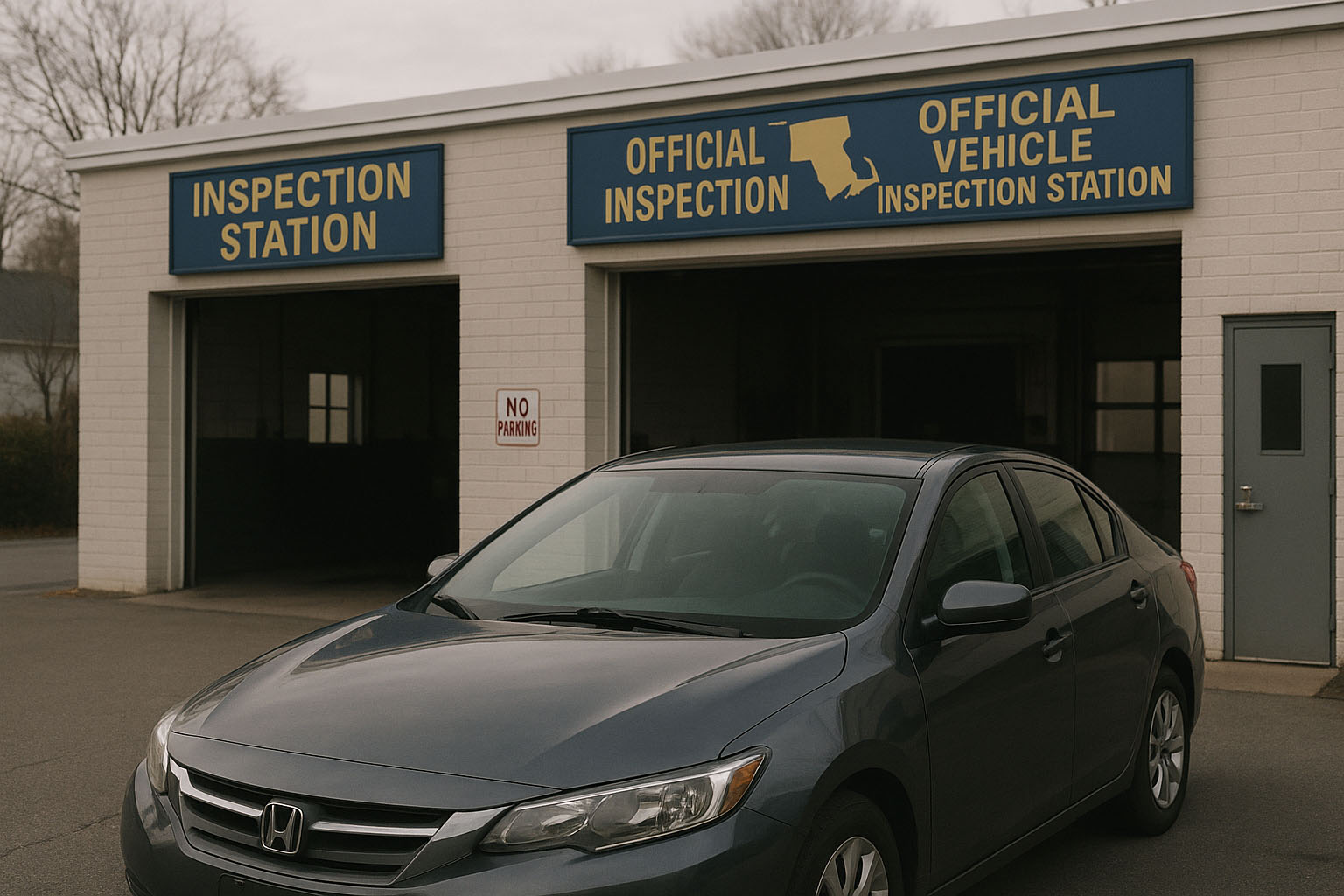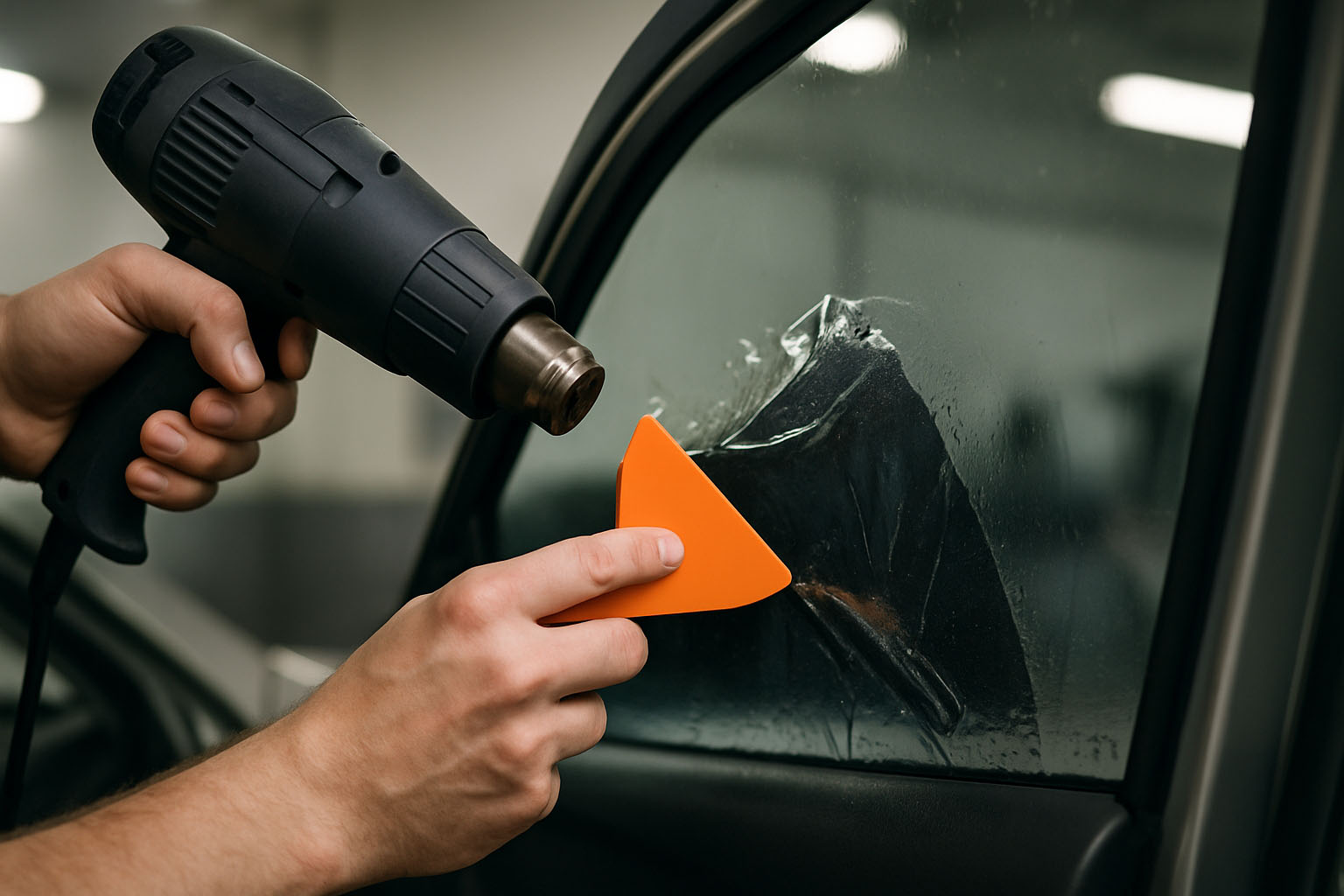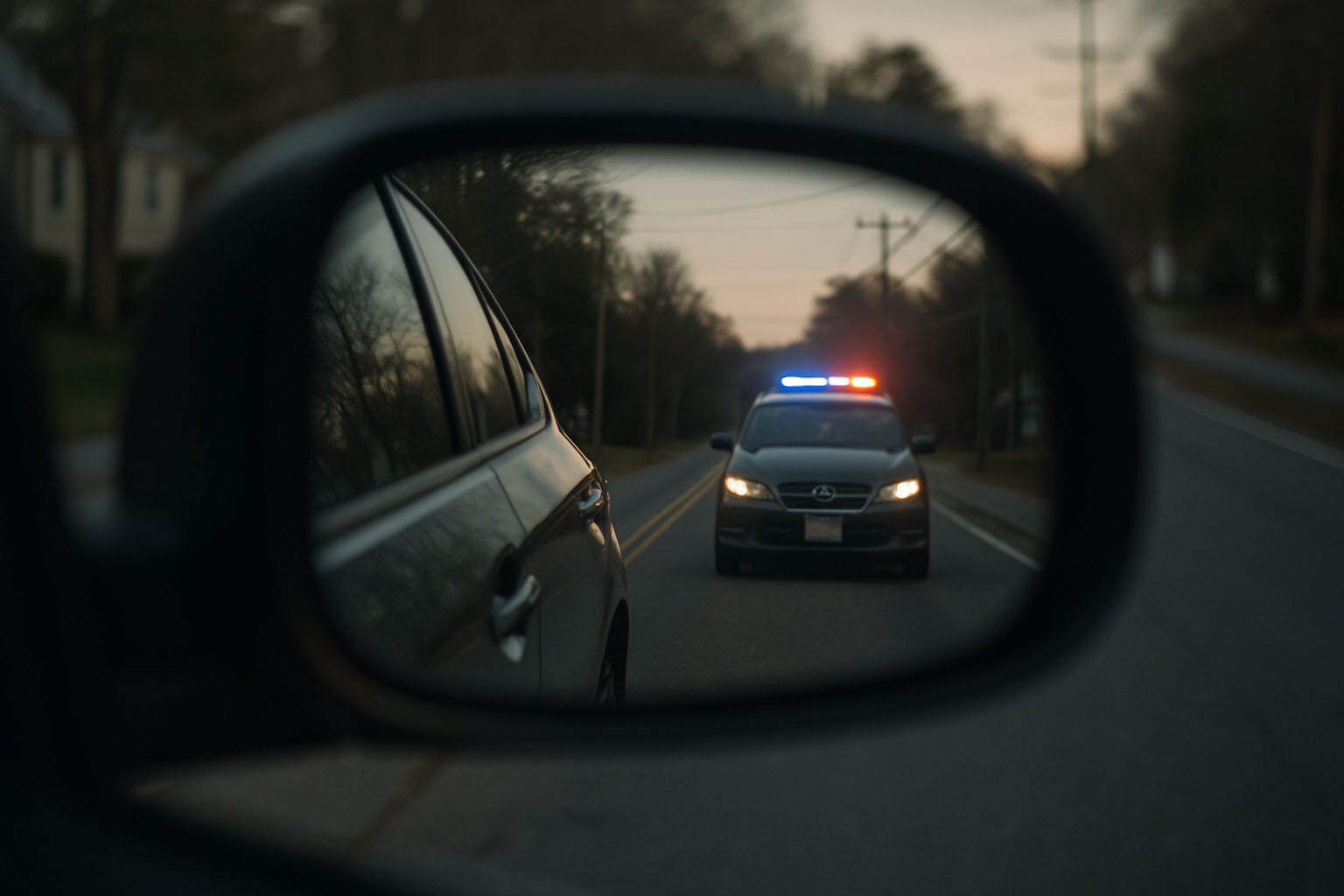Overview of Massachusetts Tint Laws
Massachusetts has straightforward tint regulations designed for driver visibility and safety on the road. The rules are defined by visible light transmission (VLT) percentage – in simple terms, how much light gets through your window. A higher VLT means more light passes through (lighter tint), while a lower VLT means the tint is darker.
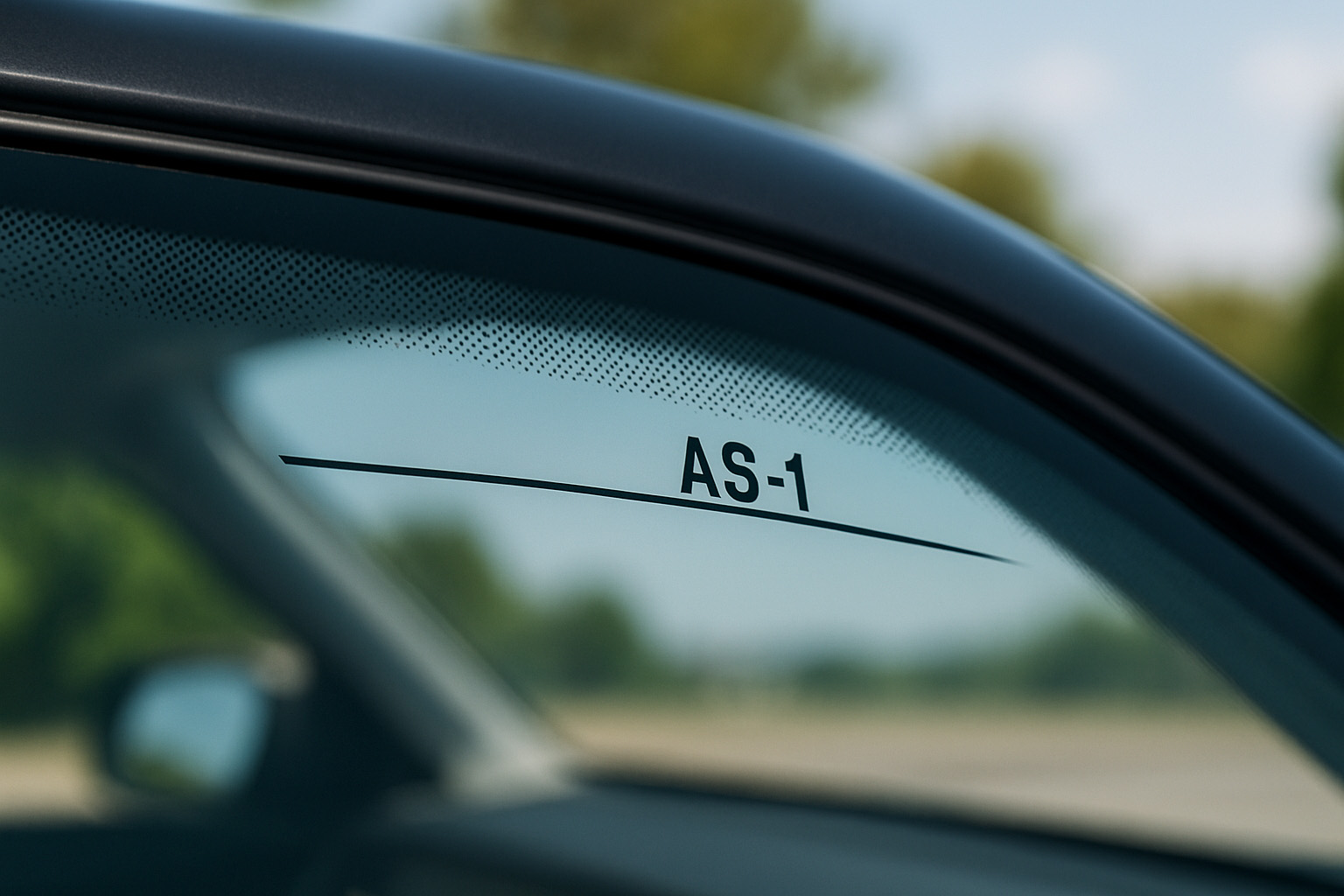
Massachusetts General Law (Chapter 90, Section 9D) and RMV regulations spell out these tint limits clearly. As a vehicle owner in MA, it’s your responsibility to comply, even if a tint shop is willing to install something darker.
Legal Tint Limits for Different Vehicles
In Massachusetts, tint limits apply similarly to all passenger vehicles – whether you drive a sedan, coupe, SUV, or minivan. Unlike some states that allow darker tints on rear windows of SUVs and vans, Massachusetts uses one standard for virtually all vehicle types. Here are the legal tint limits by window for cars, trucks, and SUVs in MA:

Key point: The 35% VLT rule means your combined tint (factory glass + aftermarket film) must still allow 35% of light through. Most cars come with a slight factory tint in the glass, so if you add aftermarket film, make sure the end result is legal. A quality tint shop will usually test the final VLT to ensure it meets Massachusetts tint law requirements. Going even a few percentage points under (like a 30% total light transmission) is illegal in MA.
Reflective and Darker Tints: What’s Allowed and What’s Not
Massachusetts not only limits tint darkness but also restricts reflective or mirrored tints. Here’s what you need to know about reflective and extra-dark films in MA:
In short, Massachusetts tint laws only allow moderate, non-reflective tinting. Dark, mirrored, or otherwise non-compliant films are off-limits if you want to avoid trouble.
Penalties for Illegal Tint in Massachusetts
Getting busted for illegal window tint in Massachusetts can result in more than just a warning. Here’s what to expect if you have overly dark or reflective windows:
Inspection Requirements and Tint Removal in Massachusetts
Every year, Massachusetts drivers line up for their vehicle inspections. If you have aftermarket window tint, here’s how it factors into the inspection process:
Pro tip: If you’re unsure about your tint’s legality, it’s wise to have it checked before your inspection is due. Some tint shops or police community events can measure your windows for you. This way, you can address any issues ahead of time and avoid an unexpected fail. Remember, Massachusetts tint law compliance is not optional – the inspection process will catch illegal tint sooner or later.
Medical Exemptions for Window in Massachusetts
Massachusetts tint laws do have a few narrow exceptions, though they are limited:
- Medical Exemptions: If you have a legitimate medical condition that requires darker tint (for example, a skin condition like lupus or a sunlight sensitivity that a doctor can verify), Massachusetts offers a medical exemption process. You’ll need proper documentation – usually a letter from a licensed physician – and you must apply through the Massachusetts RMV or an appropriate state department for approval. If granted, you’ll receive paperwork (and possibly a sticker or certificate) that proves your exemption. This might allow you to have tint darker than 35% on certain windows. Important: Even with an exemption, the tint can’t be wildly dark to the point of complete opacity – it will be a specified allowance, and you must carry your exemption proof in the vehicle at all times.
- Manufacturer (Factory) Tint: As noted, the law’s 35% VLT limit mainly targets aftermarket window film. Factory-tinted privacy glass (common on rear windows of SUVs, vans, limousines) is usually exempt from these percentages because it’s part of the vehicle’s federal manufacturing standards. However, if you have such a vehicle, you can’t add extra film on top of factory tint beyond legal limits. Massachusetts doesn’t require you to remove or alter factory-installed tint, but any modifications you make must comply with state law.
- Other Exceptions: Certain vehicles used in law enforcement or for other specialized purposes may have deeper tints (for instance, unmarked police vehicles or official vehicles that come with heavier tint for security). These are not everyday consumer exceptions and typically have separate authorization. The average driver cannot claim this as a loophole.
- Out-of-State Vehicles: If you’re visiting or moving from another state with a car that has legal tint for that state but not for Massachusetts, be aware you could still be ticketed in MA. There isn’t a blanket exemption for out-of-state plates when it comes to equipment violations. If you become a Massachusetts resident, your car will have to pass MA inspection, meaning you may need to remove illegal tint even if it was okay elsewhere.
In general, Massachusetts tint law exemptions are rare. Unless you have a documented medical need and proper approval, it’s best to assume no exceptions apply to you. Plan to stay within the standard legal tint limits to avoid headaches.
Tips for Keeping Tint Street Legal in MA
To wrap up, here are some practical tips to enjoy tinted windows while staying street legal in Massachusetts:
- Stick to 35% or Lighter: When in doubt, choose a tint that is 35% VLT or even lighter. Many Massachusetts drivers opt for 35% on the dot, but going slightly lighter (like 40% or 50%) gives you an extra safety margin to ensure you’ll pass the tint meter test and have even better visibility at night.
- Use a Reputable Tint Shop: A good tint installer in MA will know the ins-and-outs of MA car tint rules. They’ll typically inform you of the legal limits and may refuse to do an illegal job. Tell them upfront you want to stay legal – they’ll select a film that complies with Massachusetts tint law and often will have you sign off on the VLT level. Some shops even provide a sticker or certificate stating the tint percentage used, which can be handy.
- Beware of Factory Tint + Film: If you have an SUV or truck with factory tinted rear windows, be cautious about adding film. Layering a 50% film over factory tinted glass (which might already be ~20% VLT) can drop the overall VLT well below 35%. You might think you’re putting a light tint on, but the combination could be illegal. Always measure the final result or consult with experts.
- Avoid Reflective or Colored Tints: Steer clear of any mirror-like, extremely reflective, or unusual colored tints (like red, blue, chrome finishes). Not only are these not street legal in MA, they draw extra attention from law enforcement. Massachusetts prefers neutral gray or charcoal tints that simply darken the window without shimmer or color.
- Plan for Inspection Time: If your inspection is coming up and you’re unsure about your tint, get it checked beforehand. It’s better to spend a small amount or find a free tint check event than to fail inspection. If you get a tint ticket in Massachusetts, take care of it promptly – remove the tint and get re-inspected to clear the violation. Delaying will only risk more fines.
- Know the Law and Educate Passengers: Sometimes well-meaning friends or family might suggest “you should tint your car darker” for looks or privacy. Be armed with the knowledge: explain that in Massachusetts, a super dark tint could get you pulled over. It’s not about preference; it’s about the law. As the driver, you’re responsible for any modifications on your car.
By following these tips and respecting the Massachusetts tint laws, you can enjoy the benefits of window tint (heat reduction, UV protection, glare reduction, and some privacy) without legal troubles. The goal of Mass Tint Guide is to give you independent, no-fluff information so you can make informed decisions. In MA, that decision should be clear: stay at 35% or above, avoid flashy tints, and you’ll cruise with peace of mind knowing your tint is street legal. Safe driving!




